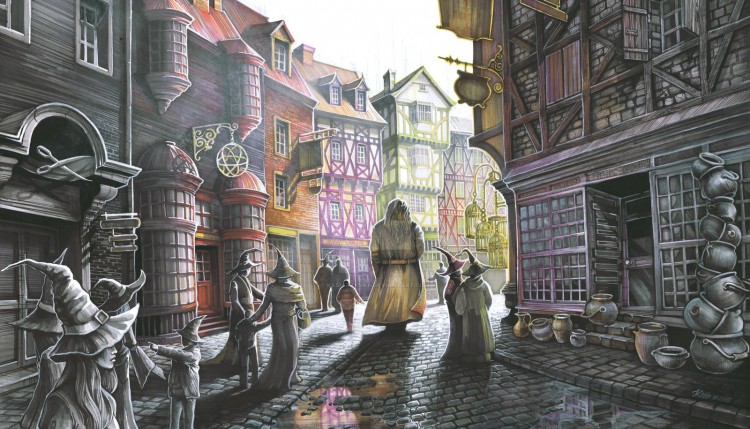
The State of the Wizarding World (Or, Why Voldemort’s Attempts to Make the Wizarding World Legible Failed)
During Harry Potter and the Deathly Hallows, one views a chaotic Wizarding World that is struggling against Voldemort’s rule. Luckily, Harry Potter succeeded in killing Voldemort, thus ending his reign over the Ministry of Magic. However, one has to wonder what would have happened if Harry wasn’t successful. Would Voldemort have stayed in power? Would the oppressive policies that Voldemort created work long-term?
When looking at these questions from the perspective of Seeing like a State by James Scott, one has to conclude that the answer to the aforementioned questions is no. This is because in Voldemort’s attempts to make the Wizarding World legible to outsiders (albeit, outsiders that practice dark magic) he fulfilled the four elements that Scott talks about – administrative ordering, authoritarian state, high-modernism, and a weak society. Thus, Voldemort created the destruction of his reign.
The first element is administrative ordering. Scott describes this as “a simplification of the state.” During Voldemort’s reign, the Dark Lord placed an emphasis on the status of blood purity. No longer were you Hermione Granger – the smartest witch of your age, now you were Hermione Granger – muggleborn/mudblood. The purer your blood, the higher magical power you had (this was proven false – but that’s an essay for another time). By labeling others strictly on their blood purity, he was simplifying wizarding society into social hierarchies that one could easily view.
Scott describes high-modernism as “the self-confidence about scientific and technical progress.” Within the Wizarding World, science was focused around various topics, one of which was blood purity. Throughout the series, one saw debates over whether purebloods actually could control magic better or not due to their ‘higher’ blood status. Voldemort took on this crusade and insisted that purebloods were better than half-bloods or muggleborns, and his policies reflected his stance. Thus, the science of blood purity played a key role in his society.
The authoritarian state as described as being a “state that is willing and able to use the full weight of its coercive power to bring these high-modernist designs into being.” We see this in Voldemort’s world with the Muggleborn Registration Commission, the changing of the Hogwarts school curriculum, and government spread propaganda.
The fourth element is “a society that lacks the capacity to resist the [high-modernist] plans.” The Wizarding World was definitely a weak society, as war, terrorism, and a corrupt government had ravaged it. Thus, Voldemort was easily able to take control.
Even though Voldemort was able to take over the Wizarding World, he didn’t take into account the position and spirit of the people. As Scott says in Seeing Like A State, “the fact that such order works for state authorities… is no guarantee that it works for the citizens” and “those uprooted… could, and did, strike back.” I believe that eventually, the citizens would have fought back and overcome Voldemort’s reign of terror. A population made up of a diverse and powerful group of people would not have taken this lying down.



